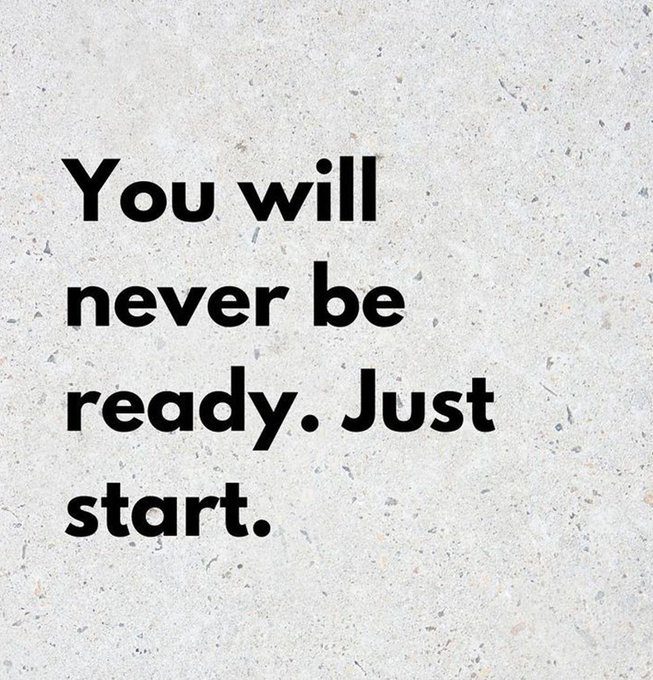Hi all, today I would like to share about the interesting topic, namely "A formula for success is consistency as if there's no tomorrow", the main reason why I choose that topic because many people want to succeed but not many of them want to survive with the uncertainty, difficult thing and unrelenting problem, people often feel unready in life because life itself is unpredictable. No matter how much we plan, there are always unexpected challenges, emotions, and changes. Growth, learning, and adapting are ongoing processes, and sometimes, the fear of failure or the unknown makes people hesitate. Being "ready" is often an illusion—most progress comes from taking action despite uncertainty, The feeling of never being ready in life can stem from various psychological, social, and environmental factors. Here are some reasons why people might feel this way:
1. Fear of Failure: Many people fear making mistakes or failing, which can make them feel unprepared to take on new challenges or responsibilities.
2. Perfectionism: Perfectionists often feel that they need to be fully prepared and have everything in place before they can take action. This can lead to a constant state of feeling unready.
3. Overwhelm: The complexity and fast pace of modern life can be overwhelming. With so many responsibilities and options, it can be hard to feel prepared for everything.
4. Uncertainty: Life is inherently uncertain, and this unpredictability can make it difficult to feel ready for what’s coming next.
5. Comparison with Others: Social media and societal pressures can lead people to compare themselves with others who seem to have everything figured out, making them feel inadequate or unready.
6. Lack of Confidence: Low self-esteem or lack of confidence in one’s abilities can contribute to a perpetual feeling of not being ready.
7. Procrastination: Delaying tasks or decisions can create a backlog of responsibilities, making it hard to feel prepared for new ones.
8. High Expectations: Sometimes, people set unrealistically high expectations for themselves, which can make it difficult to ever feel ready.
9. Rapid Change: The world is changing rapidly, especially with technological advancements. Keeping up with these changes can be challenging and can make people feel perpetually behind.
10. Lack of Support: Without a strong support system, people might feel isolated and unprepared to face life’s challenges.
How to Cope:
- Accept Imperfection: Understand that it’s okay not to have everything figured out. Life is a learning process.
- Set Realistic Goals: Break down tasks into manageable steps and set achievable goals.
- Seek Support: Don’t hesitate to ask for help or advice from friends, family, or professionals.
- Practice Self-Compassion: Be kind to yourself and recognize that everyone has moments of doubt and unpreparedness.
- Focus on the Present: Mindfulness and focusing on the present moment can help reduce anxiety about the future.
- Continuous Learning: Embrace a mindset of continuous learning and growth, which can help you feel more prepared over time.
Feeling unready is a common human experience, and it’s important to remember that it’s okay to not have all the answers. Life is about navigating uncertainties and growing through experiences.
















